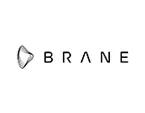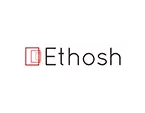B.Des. Fashion and Apparel Design
Programme Overview
The MIT-WPU’s B.Des. Fashion and Apparel Design programme offers a unique and contemporary curriculum, whether in the world of Fashion or Apparel Design, blending design with technology. More than just a design showcase, it explores fashion's potential as an agent of social, cultural, and environmental change.
Spanning from concept to consumer, the curriculum provides a thorough exploration of the fashion industry, integrating fabric science with design techniques, sustainable practices, and core tracks in either Policy or Business, both of which can be tailored to suit your career aspirations.
The programme also covers emerging trends such as wearable tech, digital fashion, and ethical supply chains, providing you with the skills needed to thrive in a rapidly evolving fashion industry.
The rich experience gained through industry projects, internships, and workshops, ensures that you are well-prepared to observe and engage with real-world scenarios. Whether your goal is to work with top fashion houses or launch your own brand, you will graduate as an innovative and socially responsible creator, ready to make your mark in the fashion industry and beyond with MIT-WPU.
Major Tracks
- Textile Processes
- Fashion Merchandising
- Fashion Design
- Garment Construction
- Apparel Manufacturing
Duration & Fees
Duration
4 Years
Last Date to Apply : 06 April 2026
Fee Per Year
₹ 4,25,000
Scholarship
| Scholarship for AY 2026-27 | MIT-WPU CET CBT Score | UCEED Rank |
|---|---|---|
|
Dr. Vishwanath Karad Scholarship |
93 & Above |
Upto 800 All India Rank |
|
MIT-WPU Scholarship I |
91 & Above |
801-2000 All India Rank |
|
MIT-WPU Scholarship II |
90 & Above |
2001 to 2500 All India Rank |
Note: Scholarships will be awarded based on the MIT-WPU CET 2026 Computer-Based Test (CBT) score or UCEED 2026 Score.
Terms & Conditions Apply:
- All Scholarships are awarded on a First Come First Serve basis. All Scholarships are awarded as fee adjustments.
- To continue the scholarship for the entire duration of the programme, a minimum level of the academic score has to be maintained at an 8 CGPA across all semesters, attendance is to be maintained at a minimum of 80 percent and there should be no disciplinary action against the student.
For more detailed information visit our website: https://mitwpu.edu.in/scholarships
Eligibility
Minimum 50% aggregate marks in Class 10+2/ HSC or its equivalent examination in any stream with English subject (Minimum 45% aggregate marks for candidates belonging to the Reserved Category from Maharashtra State).
Selection Process
Admissions will be based purely on the merit of MIT-WPU CET 2026/ UCEED 2026/ NIFT 2026/ NATA 2026/ NID 2026 score, along with Personal Interaction (PI) and Portfolio Review, as per the prescribed schedule.
A valid score in UCEED/ NATA/ NIFT/ NID may also be considered for the selection process; in such cases, the candidate must additionally appear for the MIT-WPU CET Personal Interaction (PI), Portfolio Review, and Drawing Test as per the schedule
Programme Highlights
- Advanced Fashion Design Methods : Expand your knowledge of fashion design through innovative approaches to digital fashion design, wearable technology, and sustainable textile innovations.
- Tangibly Application of Design Frameworks : Test the theoretical ideas on modern fashion needs, and develop both fashionable and operational plans.
- Industry Exposure and Professional Networking : Connect with fashion industry experts and organisations, enhancing your career prospects.
- Multifaceted Learning Approach : The curriculum merges fashion design principles with studies in material science, consumer behaviour, and ethical fashion, broadening your design perspective.
- Participatory Learning Environment : Engage with industry stakeholders in hands-on projects, cultivating pragmatic skills and creative applications.
- Fashion-Related Clubs and Organizations : Join clubs and organisations focused on fashion — emphasise leadership, teamwork, and other skills.
- Sustainable and Ethical Fashion : Study eco-friendly and ethical fashion techniques.
- Industry ties : Internships and placements with well-known design studios or fashion houses help grow your experience.
- Mentorship and Entrepreneurial Development : Get mentored by those who have established successful startups and university incubations, like MIT-WPU Pune Technology Business Incubator (TBI).
Programme Structure
| Semester | Course Type | Course Name/Course Title | Total Credits |
|---|---|---|---|
|
I |
University Core |
Effective Communication |
1 |
|
I |
University Core |
Critical Thinking |
1 |
|
I |
University Core |
Environment and Sustainability |
1 |
|
I |
University Core |
Foundations of Peace |
2 |
|
I |
University Core |
Yoga - I |
1 |
|
I |
University Core |
SLDP |
1 |
|
I |
Programme Foundation |
Visualisation and Design Fundamentals |
4 |
|
I |
Programme Foundation |
Makers and Tinkers Lab |
3 |
|
I |
Programme Foundation |
Digital Tools |
3 |
|
I |
Programme Foundation |
Introduction to Research, Thinking and Methods |
3 |
|
I |
Programme Foundation |
Crafting Creativity and Impact |
3 |
|
|
|
TOTAL |
23 |
| Semester | Course Type | Course Name/Course Title | Total Credits |
|---|---|---|---|
|
II |
University Core |
Advanced Excel |
1 |
|
II |
University Core |
Financial Literacy |
1 |
|
II |
University Core |
Yoga - II |
1 |
|
II |
University Core |
Co-creation |
1 |
|
II |
University Core |
Indian Constituion |
1 |
|
II |
University Core |
IKS(General) |
2 |
|
II |
University Core |
Sports |
1 |
|
II |
Programme Foundation |
Fashion Illustration |
3 |
|
II |
Programme Foundation |
Fundamentals of Garment Construction |
3 |
|
II |
Programme Foundation |
Textile material and processes |
4 |
|
II |
Programme Foundation |
Fashion Concepts |
3 |
|
|
Total |
21 |
|
| Semester | Course Type | Course Name/Course Title | Total Credits |
|---|---|---|---|
|
III |
University Core |
Research Innovation Design Entrepreneurship (RIDE) |
2 |
|
III |
University Core |
Spiritual & Cultural Heritage; Indian Experience |
2 |
|
III |
University Electives |
UE - I |
3 |
|
III |
University Electives |
UE-II |
3 |
|
III |
Programme Major |
Advanced Fashion Illustration & Visualization |
3 |
|
III |
Programme Major |
Elementary Pattern Making and Garment Construction |
3 |
|
III |
Programme Major |
Apparel manufacturing and Merchandising |
3 |
|
III |
Programme Major |
Surface Ornamentation Techniques |
3 |
|
III |
Programme Electives |
Functional Fashion: Design for Healthcare / Kidswear Design: Design for Newborns |
4 |
|
III |
Programme Electives |
Fashion Accessory Design: Contemporary Jewellery Making / Indian Ethnic Fashion: Indian Cholis and Blouses |
4 |
|
|
Total |
23 |
|
| Semester | Course Type | Course Name/Course Title | Total Credits |
|---|---|---|---|
|
IV |
University Electives |
UE-III |
3 |
|
IV |
University Core |
Rural Immersion |
1 |
|
IV |
University Core |
Life Transformation Skills |
1 |
|
IV |
Programme Foundation |
Evolution of Costumes and Fashion |
3 |
|
IV |
Programme Major |
Intermediate Pattern Making and Garment Construction |
4 |
|
IV |
Programme Major |
Creative Draping Techniques |
3 |
|
IV |
Programme Major |
Trend Forecast and Range Development |
3 |
|
IV |
Programme Electives |
Functional Fashion: Uniforms and Corporate Apparel / Kidswear Design: Print and surface design for kid’s fashion |
2 |
|
IV |
Programme Electives |
Fashion Accessory Design: Creative Baggage / |
2 |
|
|
Total |
22 |
|
| Semester | Course Type | Course Name/Course Title | Total Credits |
|---|---|---|---|
|
V |
University Core |
Managing Conflicts Peacefully: Tools and Techniques |
2 |
|
V |
Programme Foundation |
IKS - FAD |
2 |
|
V |
Programme Major |
Styling and Visual Merchandising |
3 |
|
V |
Programme Major |
Fashion Technology and System Integration |
2 |
|
V |
Programme Major |
Advance PMGC and Pattern Grading |
3 |
|
V |
Programme Major |
Fashion Communication and Experience Design |
2 |
|
V |
Programme Major |
Fictional and Cosplay Fashion |
3 |
|
V |
Programme Electives |
Functional Fashion: Technical Performance Apparel/ Kidswear Design: Pattern making and garment construction for kid’s fashion |
2 |
|
V |
Programme Electives |
Fashion Accessory Design: Footwear Design/ Indian Ethnic Fashion: Tunics and dresses |
2 |
|
|
Total |
21 |
|
| Semester | Course Type | Course Name/Course Title | Total Credits |
|---|---|---|---|
|
VI |
University Core |
National Academic Immersion |
2 |
|
VI |
Programme Major |
Fashion Entrepreneurship |
3 |
|
VI |
Programme Major |
Lingerie and Knitwear design |
3 |
|
VI |
Programme Major |
Fashion Show Production |
4 |
|
VI |
Programme Electives |
Functional Fashion: Adaptive and Smart Apparel/ Kidswear Design: Multi-functional and interactive Kids Apparels |
2 |
|
VI |
Programme Electives |
Fashion Accessory Design: Unconventional Accessory Design / Indian Ethnic Fashion: Indian Bridal Wear |
2 |
|
VI |
Programme Capstone Project/ Problem-Based Learning/ Seminar and Internships |
Haute Couture and Avant Garde |
4 |
|
|
Total |
20 |
|
| Semester | Course Type | Course Name/Course Title | Total Credits |
|---|---|---|---|
|
VII |
Programme Major |
Designing for Emerging Technologies |
1 |
|
VII |
Programme Major |
Fashion Design Research and Strategy |
1 |
|
VII |
Programme Major |
Advanced Fashion Prototyping and User Testing |
1 |
|
VII |
Programme Major |
Designing for Fashion Data-Driven Experiences |
1 |
|
VII |
Programme Major |
Fashion Design Portfolio and Presentation |
1 |
|
VII |
Programme Capstone Project/ Problem-Based Learning/ Seminar and Internships |
Dissertation Project - Fashion & Apparel Design |
8 |
|
VII |
Programme Capstone Project/ Problem-Based Learning/ Seminar and Internships |
Fashion Futures |
2 |
|
|
Total |
15 |
|
| Semester | Course Type | Course Name/Course Title | Total Credits |
|---|---|---|---|
|
VIII |
Programme Capstone Project/ Problem-Based Learning/ Seminar and Internships |
Industry Internship - Fashion and Apparel Design |
18 |
|
|
Total |
15 |
|
Career Prospects
Fashion Designer
Apparel Designer
Textile Designer
Fashion Buyer
Fashion Stylist
Visual Merchandiser
Fashion Illustrator
Costume Designer
Apparel Production Manager
Fashion Brand Manager
Fashion Consultant
Fashion Analyst
Couture designer
Functional Fashion Designer
Fashion Accessory Designer
Trend Forecaster
Fashion Journalist
Fashion Retail Manager
Sustainability Coordinator in Fashion
Personal Shopper
Wardrobe Consultant
Fashion Public Relations Specialist
Fashion Event Coordinator
Digital Fashion Content Creator
Freelance/Independent Designer
Academic/Researcher
Fashion Entrepreneur
Programme Outcomes
- Master the basics of fashion design and garment construction.
- Concetualise and develop unique designs that are visually pleasing using the design process.
- Sketch, and use digital tools and hands-on techniques to help realise your creative vision.
- Learn about fabric properties and how to utilise them to create comfortable, durable, and sustainable designs.
- Learn pattern making and garment construction to translate ideas into real clothing.
- Focus on current trends and set the agenda with your own unique creative flair.
- Design your brands using sustainable materials, ethical production methods, and social impact.
- Create a full design portfolio featuring your design process, the evolution of your designs, and your hard skills.
- Work alongside industry experts, and acquire hands-on experience through internships and practical projects.
- Communicate design ideas through visual and verbal methods.
- Develop entrepreneurial skills, and learn to create a fashion brand and business of your own.
Placements & Recruiters
100% Placement Assistance
Top Recruiters
FAQs
You can get trained in fashion design, sustainable fashion, pattern making, textile science, fashion forecasting, brand and many more.
Yes, the programme has a focus on practical learning through internships, real-world projects, and collaboration with industry partners.
Yes, there is 100% placement assistance offered by the programme through strong industry ties and wide access to a vast number of recruiters partnered with MIT-WPU.
B.Des in Fashion Design is the gateway to an exciting, innovative realm where your imagination is the only limit to your stylish design creations! At MIT-WPU, you study the contemporary trends of fashion, sustainable design and digital techniques. You also get hands-on experience with projects and internships that equip you for rewarding careers in the fashion sector.
- Fashion Marketing and Merchandising : this is how to market and sell clothing.
- Pattern Making and Garment Construction : Familiarise yourself with the technical process of clothing design & production.
- Textiles and Materials : Research different materials and textiles to make informed design decisions.
- Fashion Sketching and Illustration : Hone your skills in sketching and illustrating fashion ideas.
- Design Fundamentals : Start with the basics to translate ideas into reality.

















 admissions@mitwpu.edu.in
admissions@mitwpu.edu.in
